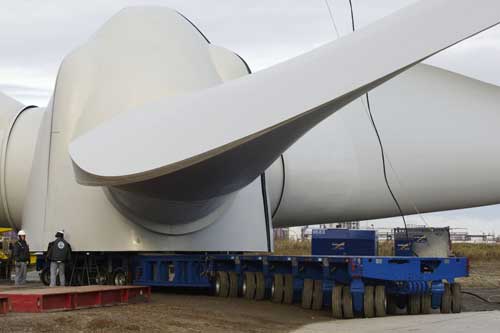If the deal goes ahead, the stake will see Gamesa and BARD jointly marketing and developing offshore services and products. There is also a possibility that Gamesa will manufacture BARD wind turbines under license.
Previously Gamesa has experimented with the idea of adapting its 4.5MW machine for offshore usage. it remains to be seen whether this work will continue.
The understanding with BARD marks a major change in Gamesa’s reluctance to take the plunge offshore. Speaking about the deal to “uåX˜äŠÊ˜·³Ç, a Gamesa spokesman said: "The market circumstances have changed and so too the growth outlook in the offshore segment."
Gamesa has previously dabbled in offshore but to little effect. In 2007, the company pulled out of an offshore wind development joint venture, Ceowind, then describing the offshore segment as a mere "niche".
More recently, insiders have expressed surprise at Gamesa’s exclusion from Emerge, an offshore R&D project to develop floating turbine technology for deep waters, led by Iberdrola Renovables, the world’s top wind operator and Gamesa’s biggest client and shareholder.
Instead, the turbine manufacturing partner in the project, which started work in November 2009, is competitor Ecotècnia, acquired by France’s Alstom in 2007.
Gamesa explains its switching onto the global offshore tide happened after negotiations for Emerge had advanced. Now, the company says "Gamesa will not turn down the chance to become an offshore reference in the medium term".
The proposed collaboration between Gamesa and BARD has met with approving words from an equity investor. Willi Mannheims, board director of Ventizz Capital Partners, a private equity fund management and advisory company focused on companies with "a unique position technologically" sees benefits in cooperation between companies from two different countries.
Mainheim says that besides the potential advantages of mergers such as synergies and economies of scale, we believe the different national focus of two wind turbine manufactures can be a success factor for a merger. "The establishment of wind parks often depend on local circumstances and relationships to national energy providers. The obvious difficulties of the big European players entering the Asian markets, underline the necessity for global cooperation."
There can be a down side however. "Besides the potential disadvantage of a clash of different cultures, and potential loss of focus, a disadvantage is clearly when one partner encounters financial difficulties such as in the Repower-Suzlon union. The transfer of Repower's superior technology to India takes much longer than originally expected," Mannheim says.
But with regard to the likelihood of the success of mergers, "we believe the wind industry is not that different from other industries. Innovation, flexibility speed and customer orientation are success factors rather than pure size."

.png)



.png)









